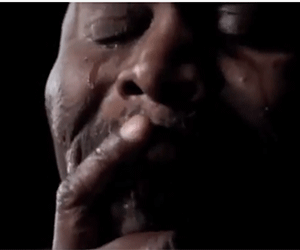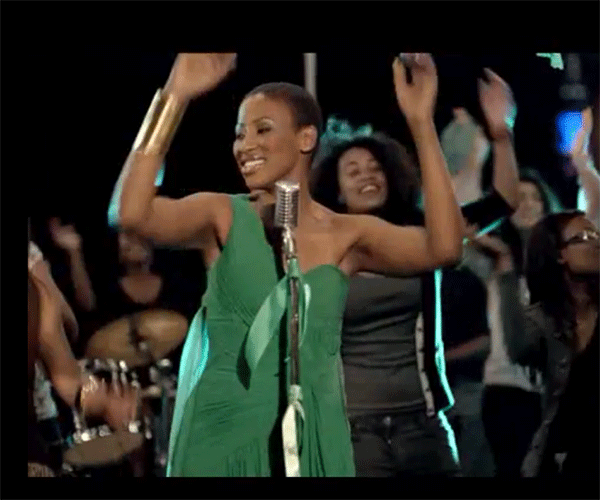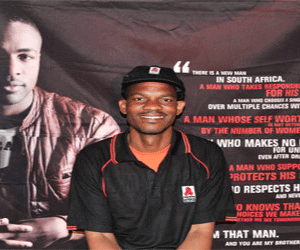One could have heard a pin drop as actor Patrick Shai took the podium and described in brutally honest detail how he transformed himself from a wife-beater to an activist against gender-based violence.
Shai was speaking at the October 20 launch of the latest Brothers for Life campaign, Brothers Against Violence, which aims to address the issue of violence against women and children. He is also the public face of the campaign, by way of a hard-hitting television public service announcement. Read the story about the new PSA featuring Patrick Shai.
“It’s not an easy subject to talk about,” Shai told the audience, describing that his actions became clear as he shot a domestic violence scene for the TV drama Soul City – suddenly he was no longer on the set, but in his own home and abusing his own family.
“For the first time, I saw the pain I was dishing out to my wife,” he said. “For the first time, I heard the pleas of my son, and I saw the pain on the face of my wife … I knew then that I needed to change.”
When he spoke to his wife, she pledged her support for him. “Against all popular beliefs that men cannot change, the very woman believed that I meant it, that I can change,” he said, adding that the “many Patrick Shais out there who do what I did” could change if given the chance.
Johns Hopkins Health and Education in South Africa (JHHESA) Country Programme Manager Richard Delate – under whose aegis the Brothers for Life movement is managed – told the launch that the Brothers Against Violence campaign captured the essence of Brothers for Life.
“What’s we’re really here about today … is that people can change,” Delate said, adding that the challenge was getting men to come forward to say that they have changed, as Shai has courageously done.
Studies have shown that one in four South African women experience violence at some point in their lives, that a woman is murdered by her intimate partner every six hours, and 28% of South African men have admitted to sexually assaulting a woman – and 75% of these men had done so by the age of 20. Brothers Against Violence is an attempt to alter these alarming statistics.
The campaign has four components: mass media, including the Shai TV PSA, radio PSAs in six languages, and a talk show linked to the new TV drama Intersexions; media advocacy; community participation, involving approximately 100 community organizations; and partnerships with partners in the gender transformation field and government.
The Brothers Against Violence launch was attended by Health Minister Dr. Aaron Motsoaledi and Women, Children and Persons with Disabilities Minister Noluthando Mayende-Sibiya, as well as Brothers for Life Ambassadors, including soccer stars Matthew Booth and John “Shoes” Moshoeu, Lions rugby player Bandise Maku and musician Theo Kgosinkwe.
Motsoaledi, noting that former United Nations secretary-general Kofi Annan had once stated that violence against women is “the most shameful human rights violation”, observed that gender-based violence increases the spread of HIV because violent males insist on risky sexual behaviour and are more likely to be HIV-positive, and because women’s sexual rights are less likely to be respected.
As with the fight against HIV and AIDS, men have a critical role to play in combating gender-based violence, said the minister: “Without the involvement of men, there is no way we are going to win this fight.”
Mayende-Sibiya called for a united response to gender-based violence. “Now it is time for all of us to work together in the fight against gender-based violence. I am making an impassioned plea,” she said, lauding Shai for his courageous decision to tell his own story.
“I wish to thank Mr Patrick Shai for the courage and leadership he has shown here today … You have given us another side of the story, which will help us better understand the phenomenon of gender-based violence,” she said.
View the PSA featuring Patrick Shai
Learn more about Johns Hopkins Health and Education in South Africa and Brothers for Life.
Brothers for Life was recently highlighted in an article in the Mercury, a newspaper in Durban, South Africa.





